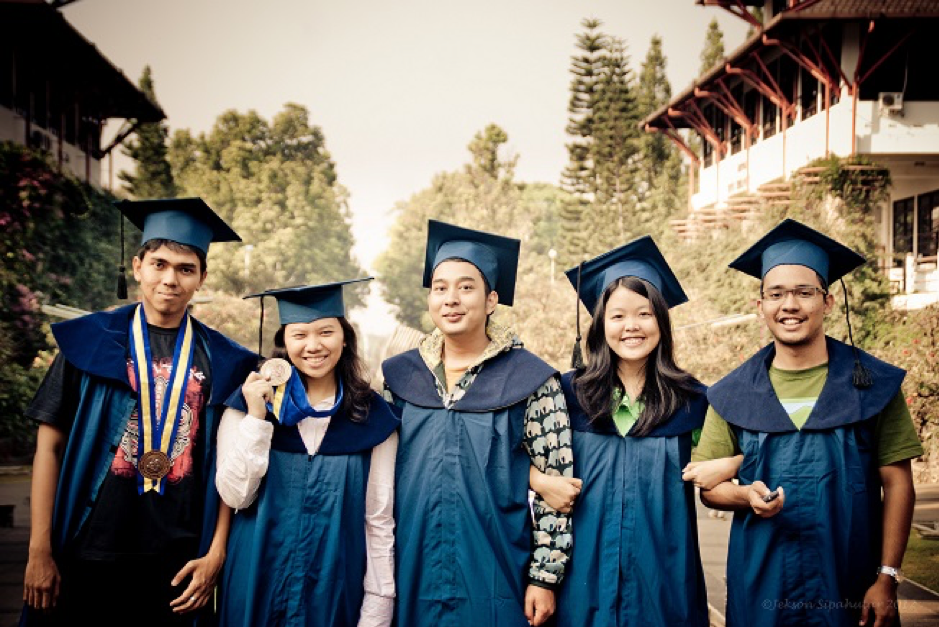Over the past two decades, Indonesia has added 40 million people to its population. The country’s demographic dividend is often touted as one of its major strengths and a magnet for foreign investors. But are the talents delivering what the new economy demands?
Indonesia has a fast-growing middles class, estimated to be around 50 million today and projected to increase to well over 100 million by 2045. The nation’s economic expansion over the past decade has been driven by domestic consumption on the back of the expanding middle class.
A review of 200 large investments in Indonesia over the past 5 years showed none were tech-based or value-add. This is a concern and it points to a fundamental challenge for the government and the country as a whole. One of the main reasons why high-tech manufacturing investments are not in Indonesia is the country’s huge talent deficit.
In a survey on people issues conducted by The Boston Consulting Group and the World Federation of People Management Associations, senior executives cited managing talent and developing leadership as the two most critical challenges facing Indonesia. The lack of middle management talent is hindering investments and the ability of companies to expand. By 2020, a 40% to 60% gap between the demand for middle managers and the supply will have developed.
The talent deficit is accentuated by the Indonesian economy’s structural realignment from over reliance on agriculture and natural resources to services. According to the report, the services sector has risen from 36% of GDP in 2010 to 41% of GDP in 2015. By 2020, 55% of jobs will be administrative or managerial and Indonesia is not producing sufficient graduates to fill these positions.
The irony is that Indonesia has more than 1,000 colleges and universities. However the country only produces only 30,000 engineers per year, a 40% shortfall. This figure will rise to 70% by 2025.

Is Better Education the Answer?
Dirgayuza Setiawan just turned 29. He is a prime example of how both the challenges facing Indonesia can be addressed. The Oxford University graduate, through his work at McKinsey & Co Indonesia, is already deeply involved in finding solutions to the challenges that are holding Indonesia back.
He is active in crafting Internet governance regulations and has been involved in a number of nation wide projects. His dream, however, is to be an entrepreneur and utilizing the digital economy to further Indonesia’s education system.
“McKinsey is often regarded as a school for budding CEOs,” he notes in an interview with the Indonesian Economic Forum. “A number of start-up founders are McKinsey alumni including Sheryl Sandberg and Nadiem Makarim. I too have aspirations to start my own company and there are ample opportunities to do so.”
As often is the case, Yuza’s personal experience has shaped his views on how Indonesia can revamp its education system and produce the talent the nation needs so desperately. He dropped out of a national school in grade 4 because “they forced me to memorize the text and sit for multiple question exams.”
He switched to a school that offered the International Baccalaureate (IB) program where he was able to pursue his interest and explore new areas. Unfortunately, the IB program is only available at elite schools in Indonesia, including international schools.

“Students who go to international and elite schools have a higher chance of going to top ranked university, obtain prestigious scholarships and find great paying jobs,” notes the avid polo player. “This increases inequality and widens the social gap so we have to solve this problem.”
Dirgayuza Setiawan, Consultant, technologist and speechwriter. Indonesia evangelist. @oxford_uni & @Unimelb alumnus
Source: Pictame
Adopting greater use of technology in education is one solution. There are already a number of initiatives such as “Ruang Guru” that are trying to address the problem but as Yuza notes, such initiatives cannot replace the entire education system. “It will take a lot of years to revamp the curriculum and bring it up to international standards.”
But the question is whether the country’s education system is being held by politics given the country’s multi-party coalition government where ministries are farmed out to different parties?
Yuza believes that Indonesia needs to democratize and deregulate its education system if it wants to produce sufficient top quality graduates. Public schools must adopt international curriculum and attract top talent into the industry while the private sector must be able to play a bigger role.
“If you ask people enough whys, it comes down to education and I believe there is enough room in the private sector to shake-up the education system in the country,” he notes.
The best indicator of the quality of Indonesia’s education system is whether the country’s elites send their children to public schools. Currently, that is clearly not the case.
President Joko Widodo has already announced a number of major changes including allowing local universities to hire foreign lecturers and foreign universities to have a presence in Indonesia.
While this is not a silver bullet, it will certainly be one of the key levers that will make quality education more affordable to the masses, as Indonesia propels forward.

